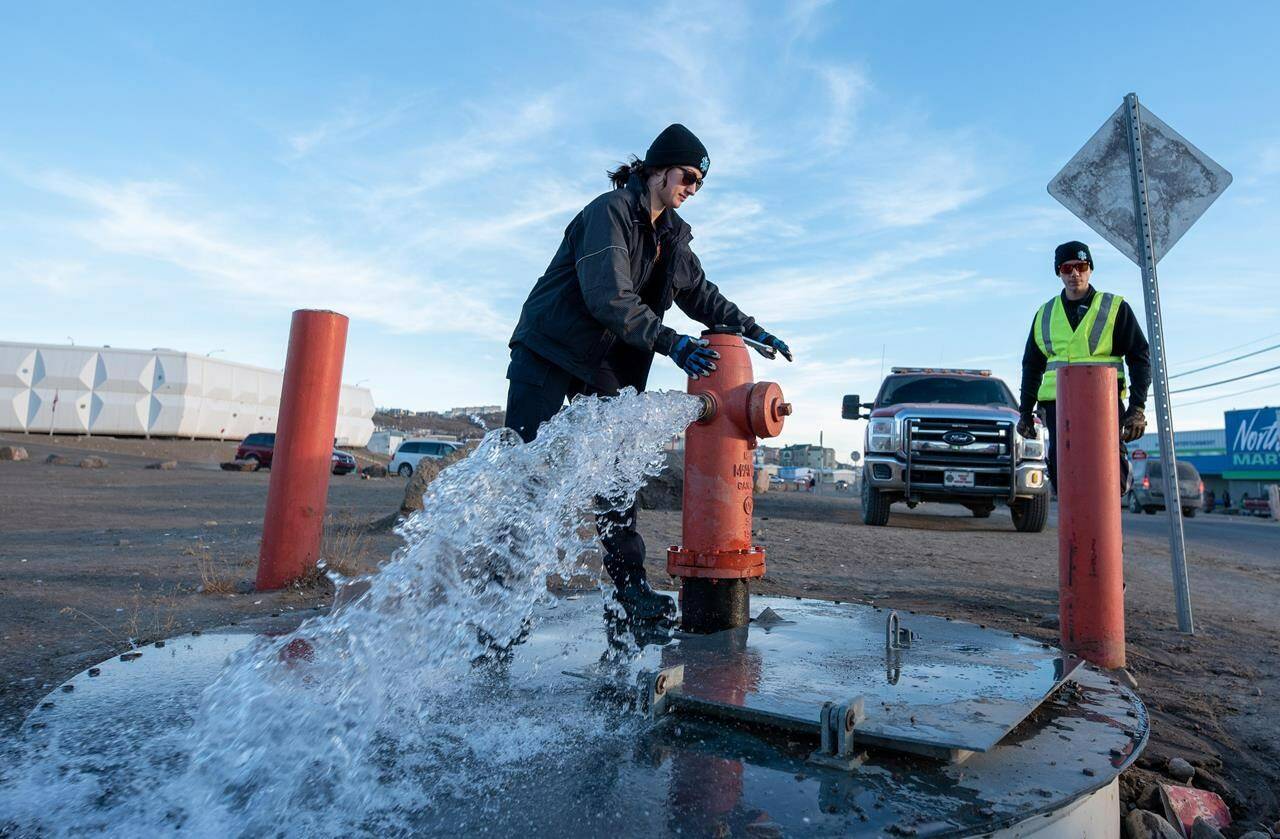IQALUIT, Nunavut — Engineers say the source of fuel in Iqaluit’s water is likely an underground fuel tank built in 1962.
The 8,000 people who live in Nunavut’s capital haven’t been able to drink their tap water since Oct. 12, after it was found to contain fuel.
The city says the fuel accumulated over time in a raw water tank at its treatment plant and was discovered in a separate tank.
Winnipeg engineers contracted by the City of Iqaluit have told a council meeting that the underground site is in the process of being cleaned up.
The engineers say water testing has come back clean since Oct. 24, but the Nunavut government still needs to do its own testing before the do-not-consume order is lifted.
Charles Goss, one of the engineers, says the spill could have happened weeks or years ago and residents would have smelled fuel in the water even at a very small concentrations.
“There isn’t a long history of people drinking contaminated water,” he told the council meeting Monday night.
The city has said residents started reporting the smell of fuel in the tap water as early as Oct. 2.
City councillors also voted to spend $100,000 on an indoor bypass tank to replace the contaminated tank.
Iqaluit residents have been able to get bottled water at sites around the city or treated water from a nearby river that is being pumped by members of the Canadian Armed Forces.
—The Canadian Press
RELATED: Iqaluit’s water emergency has so far cost $1.5M, city may ask Nunavut for aid

